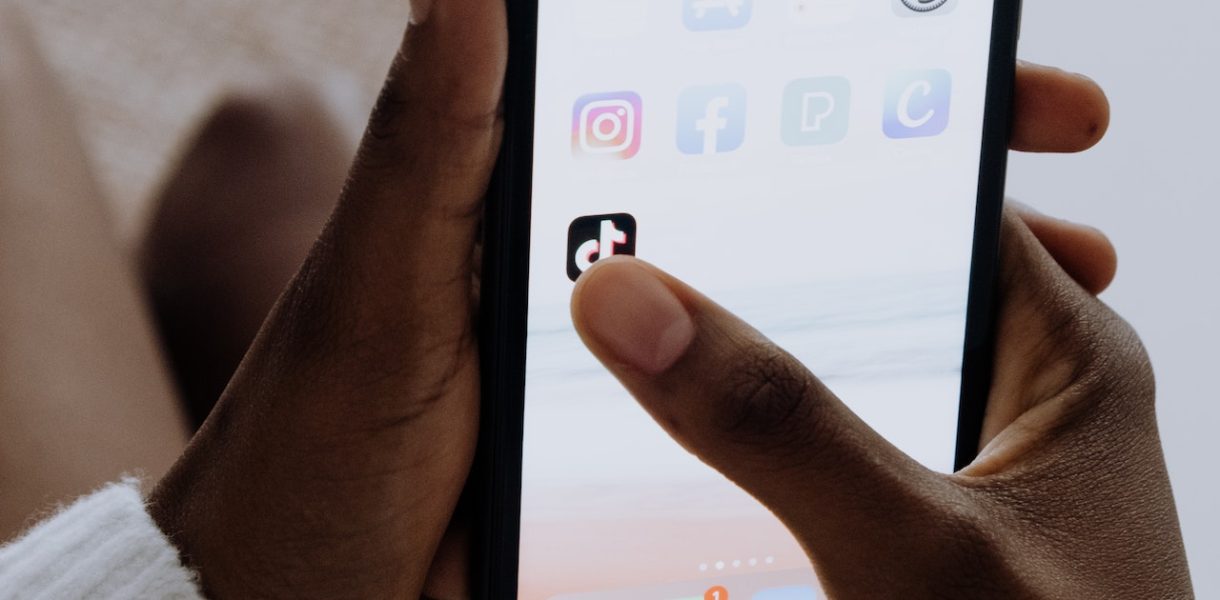The Impact of Smartphones on Communication and Connection
Smartphones have revolutionized the way we communicate and connect with others. With instant messaging apps, social media platforms, and video calling capabilities, staying in touch with friends, family, and colleagues has never been easier. The convenience of being able to send a text message or make a phone call anytime, anywhere has transformed communication into a seamless experience. Furthermore, smartphones enable us to connect with people from all around the world through various online communities and networking platforms.
In addition to facilitating communication between individuals, smartphones have also played a significant role in enhancing connectivity within communities and societies as a whole. Social media platforms like Facebook, Twitter, and Instagram allow users to share their thoughts, experiences, and ideas instantly with a wide audience. This increased connectivity has led to the formation of virtual communities centered around common interests or causes. Moreover, smartphones have become essential tools for organizing events or gatherings by providing real-time updates on schedules and locations.
The impact of smartphones on communication and connection extends beyond personal relationships; it also influences professional interactions. Many businesses now rely heavily on smartphone technology for internal communication purposes such as email correspondence or project management applications. Additionally, professionals can easily network with industry peers through business-oriented social media platforms like LinkedIn. Smartphones enable employees to stay connected even when they are away from their desks or out of the office premises.
Enhancing Productivity and Efficiency with Smartphones
Smartphones have revolutionized the way we work and have become powerful tools for enhancing productivity and efficiency in various professional settings. With their advanced features and capabilities, smartphones enable professionals to stay connected, organize tasks, and access important information on-the-go.
One significant advantage of smartphones is their ability to keep professionals connected at all times. Through email applications, instant messaging platforms, and video conferencing tools, individuals can easily communicate with colleagues or clients regardless of their physical location. This constant connectivity allows for quick decision-making processes, efficient collaboration on projects, and seamless coordination among team members.
Moreover, smartphones offer a wide range of productivity apps that help streamline tasks and optimize time management. From calendar apps that schedule appointments to note-taking apps that capture ideas in real-time, these digital tools allow professionals to stay organized and prioritize their workload effectively. Additionally, project management apps provide a centralized platform where teams can track progress, assign tasks, share files seamlessly – further boosting efficiency in the workplace.
In today’s fast-paced business environment where time is of the essence; smartphones play an integral role in enhancing productivity by providing easy access to essential information. With internet connectivity at our fingertips through mobile browsers or dedicated applications such as cloud storage services or enterprise resource planning (ERP) systems – professionals can retrieve vital data instantly from anywhere. This accessibility ensures timely decision-making based on accurate information while minimizing delays caused by traditional methods of retrieving data from desktop computers or physical files.
By leveraging the power of smartphones’ connectivity options along with productivity-enhancing applications; professionals are able to maximize their output while maintaining flexibility in their work routines. As technology continues to advance rapidly; it is crucial for individuals across industries to embrace smartphone usage as an indispensable tool for improving overall productivity and efficiency within professional environments
Smartphones as Tools for Education and Learning
Smartphones have revolutionized the way education is delivered and accessed. With their advanced features and capabilities, these devices have become powerful tools for learning both inside and outside the classroom. Students can now access a wealth of information at their fingertips, enabling them to conduct research, collaborate with peers, and engage in interactive learning experiences.
One major advantage of smartphones in education is their ability to provide instant access to educational resources. Students no longer need to rely solely on textbooks or physical libraries; instead, they can use their smartphones to access online databases, e-books, academic journals, and other digital resources. This not only enhances the quality of research but also promotes independent learning by allowing students to explore topics beyond what is covered in traditional curriculum.
Furthermore, smartphones enable personalized learning experiences through various educational apps and platforms. These apps offer interactive lessons, quizzes, flashcards, and study guides tailored to individual student needs. By using these tools on their smartphones, students can learn at their own pace and receive immediate feedback on their progress. Additionally, teachers can monitor student performance more effectively by utilizing smartphone-based assessment tools that track individual achievements.
The Role of Smartphones in Personal and Professional Development
Smartphones have become indispensable tools for personal and professional development. With the wide range of apps and features available, individuals can access information, collaborate with others, and enhance their skills anytime and anywhere. In the professional realm, smartphones enable professionals to stay connected with colleagues and clients, manage tasks efficiently, and access important documents on the go. Additionally, smartphones provide opportunities for continuous learning through online courses, educational apps, and professional networking platforms.
One significant aspect of smartphones in personal development is their ability to facilitate self-improvement. There are numerous productivity apps that help individuals organize their schedules effectively, set goals, track progress, and boost efficiency. Furthermore, smartphone applications offer various wellness resources such as meditation guides or fitness trackers that promote mental health and overall well-being. By utilizing these tools wisely, individuals can optimize their time management skills while nurturing a healthy work-life balance.
In terms of professional growth opportunities offered by smartphones, they serve as gateways to a wealth of knowledge through online resources like e-books or industry-specific websites. Professionals can leverage this accessibility to expand their expertise in their respective fields or explore new areas of interest relevant to career advancement. Moreover,
smartphones allow professionals to engage in virtual conferences or webinars where they can connect with experts from around the world without geographical limitations. This enables them to broaden their network connections which may lead to potential collaborations or job prospects.
The Role of Smartphones in Personal and Professional Development goes beyond mere communication devices; it has transformed into an essential tool that empowers individuals to take control over both aspects of life seamlessly.
The Influence of Smartphones on Social Interactions and Relationships
Smartphones have undoubtedly revolutionized the way we interact and form relationships with others. With the advent of social media platforms and messaging apps, people can now connect with friends, family, and even strangers from all over the world instantly. This ease of communication has made it possible for individuals to maintain relationships regardless of distance or time zones.
However, there is a growing concern that smartphones are also affecting the quality of our social interactions. In many social settings, it is not uncommon to see people engrossed in their phones rather than engaging in face-to-face conversations. This constant distraction can hinder meaningful connections and lead to a sense of disconnection among individuals.
Furthermore, smartphones have also introduced new challenges in romantic relationships. The temptation to constantly check notifications or engage in online activities can create a sense of neglect or lack of attention towards one’s partner. It is crucial for couples to establish boundaries and set aside dedicated time for uninterrupted communication without the interference of smartphones
Smartphones have undeniably transformed how we communicate and build relationships with others. While they offer convenience and instant connectivity, they also pose challenges such as distractions during face-to-face interactions and potential strain on romantic relationships. Striking a balance between utilizing smartphones for connection while maintaining genuine human interaction is essential for fostering healthy social interactions and nurturing strong relationships.
The Advantages and Disadvantages of Smartphones in Healthcare
Smartphones have revolutionized the healthcare industry, offering numerous advantages and disadvantages. One significant advantage is the ability to access medical information and resources at any time. With healthcare apps and online platforms, patients can easily research symptoms, find nearby clinics or hospitals, and even schedule appointments with doctors. This convenience allows for quicker access to medical care and empowers individuals to take control of their health.
Another advantage of smartphones in healthcare is the potential for remote monitoring. Through wearable devices or smartphone applications, patients can track vital signs such as heart rate, blood pressure, and glucose levels. This real-time data can be transmitted to healthcare professionals who can then monitor a patient’s condition remotely without requiring frequent visits to the doctor’s office. Remote monitoring not only improves efficiency but also enhances patient safety by enabling early detection of any abnormalities or emergencies.
However, it is important to acknowledge some disadvantages associated with smartphones in healthcare as well. One major concern is privacy and security issues surrounding personal health information stored on these devices or shared through various apps. As smartphones become an integral part of managing health records, there is an increased risk of unauthorized access or data breaches that could compromise sensitive information. Healthcare providers must prioritize implementing robust security measures to protect patient confidentiality while harnessing the benefits offered by smartphones.
In conclusion (following rule #1), despite certain challenges related to privacy and security concerns (as mentioned above), smartphones undeniably bring numerous advantages when integrated into healthcare practices (rule #2). From easy access to medical resources for patients (paragraph 1) to remote monitoring capabilities enhancing patient care (paragraph 2), these devices have transformed how we approach healthcare delivery (rule #3). Therefore, it becomes crucial for both individuals and organizations within the industry alike (professional tone)to recognize these advantages while addressing potential drawbacks responsibly(rule#4).
• Access to medical information and resources at any time
• Convenience in researching symptoms, finding clinics or hospitals, and scheduling appointments
• Quicker access to medical care and empowerment of individuals in managing their health
• Potential for remote monitoring through wearable devices or smartphone applications
• Real-time transmission of vital signs data to healthcare professionals for remote monitoring
• Improved efficiency and early detection of abnormalities or emergencies with remote monitoring
Smartphones and the Economy: Boosting Business and Entrepreneurship
Smartphones have revolutionized the way businesses operate and have greatly contributed to boosting entrepreneurship. With smartphones, business owners can easily stay connected with their customers and clients, no matter where they are. They can quickly respond to inquiries, provide updates on products or services, and even process transactions in real-time. This level of accessibility has not only improved customer satisfaction but also increased sales and revenue for many businesses.
Moreover, smartphones offer a wide range of productivity apps that help entrepreneurs streamline their operations and manage tasks more efficiently. From project management tools to accounting software, these apps enable business owners to stay organized and focused on growing their ventures. Additionally, smartphones allow entrepreneurs to access important documents and data remotely through cloud storage services, ensuring that critical information is always at their fingertips.
Furthermore, smartphones play a crucial role in fostering innovation and driving economic growth by providing a platform for new business ideas. Entrepreneurs can use various mobile applications to develop prototypes or conduct market research without the need for extensive resources or physical infrastructure. The ease of communication offered by smartphones also facilitates networking opportunities among like-minded individuals who may collaborate on innovative projects or share valuable insights.
By leveraging the power of smartphones in business operations and entrepreneurship, companies can enhance efficiency, expand market reach, and drive economic development. As technology continues to advance rapidly, it is essential for businesses to adapt accordingly by harnessing the potential of smartphones as powerful tools for growth. Embracing this digital transformation will undoubtedly contribute significantly to the overall success of both individual enterprises and economies as a whole.
The Role of Smartphones in Entertainment and Media Consumption
Smartphones have revolutionized the way we consume entertainment and media. With just a few taps on our screens, we can access a vast array of movies, TV shows, music, books, and news articles. The convenience and portability of smartphones have made it easier than ever to enjoy our favorite forms of entertainment wherever we are.
One major advantage of smartphones in entertainment consumption is the ability to stream content on-demand. Services like Netflix, Hulu, and Spotify allow users to instantly access an extensive library of movies, TV shows, and songs. This means that gone are the days when we had to wait for a specific time slot or purchase physical copies of media. Smartphones provide us with instant gratification by allowing us to watch or listen to whatever we want at any time.
Moreover, smartphones have also transformed how we engage with social media platforms. Social media apps like Instagram and TikTok offer endless opportunities for creativity and self-expression through photos and videos. Users can easily capture moments from their daily lives or create entertaining content that resonates with others. The integration of cameras into smartphones has made capturing high-quality images more accessible than ever before.
In today’s digital age, smartphones play an integral role in shaping our entertainment experiences. They provide us with limitless options for consuming media whenever and wherever we choose. Whether it’s streaming movies on-the-go or sharing creative content on social media platforms, smartphones continue to enhance our connection with entertainment in ways unimaginable just a decade ago
The Effect of Smartphones on Mental Health and Well-being
Smartphones have undoubtedly revolutionized the way we communicate and connect with others, but their impact on mental health and well-being is a topic of growing concern. Research suggests that excessive smartphone use can contribute to feelings of anxiety, depression, and loneliness. This is largely due to the constant exposure to social media platforms, which often present idealized versions of other people’s lives. Comparing oneself to these unrealistic standards can lead to negative self-perception and increased stress levels.
Additionally, smartphones have been found to disrupt sleep patterns, as the blue light emitted from screens suppresses melatonin production. This can result in difficulties falling asleep or experiencing restful sleep throughout the night. Sleep deprivation has numerous detrimental effects on mental health, including impaired cognitive function and mood disturbances.
Furthermore, the addictive nature of smartphones can also negatively impact mental well-being. The constant need for validation through likes, comments, or notifications creates a cycle of seeking external approval that can be emotionally draining. Moreover, excessive screen time takes away from face-to-face interactions and meaningful connections with others – essential factors for maintaining good mental health.
In conclusion (without using ‘in conclusion’), it is important for individuals to be mindful of their smartphone usage and establish healthy boundaries. Setting limits on screen time and engaging in activities that promote offline connections are crucial steps towards maintaining positive mental well-being in today’s digital age.
Smartphones and Privacy: Balancing Convenience and Security
As smartphones continue to play an integral role in our daily lives, the issue of privacy becomes increasingly important. Balancing convenience and security is a challenge that smartphone users must navigate carefully. On one hand, smartphones offer unparalleled convenience with features like fingerprint recognition and facial identification, making it easier than ever to access personal information and complete transactions. However, this convenience comes at the cost of potential security breaches.
One major concern regarding smartphone privacy is data collection by app developers and third-party companies. Many apps require access to personal information such as contacts, location data, and browsing history in order to provide their services effectively. While this may enhance user experience, it also raises concerns about how this data is being used or potentially exploited for targeted advertising or other purposes. It is crucial for users to carefully review permissions when installing apps and be mindful of which ones have access to sensitive information.
Another aspect of smartphone privacy relates to cybersecurity threats such as hacking and malware attacks. As smartphones become more sophisticated, so do the methods employed by cybercriminals seeking unauthorized access to personal data stored on these devices. Users must remain vigilant in updating their operating systems regularly, using strong passwords or biometric authentication methods, and avoiding suspicious links or downloads that could compromise their device’s security.
In conclusion (DO NOT USE), balancing convenience and security when it comes to smartphones requires constant awareness and proactive measures from both users and manufacturers alike. It is essential for individuals to educate themselves about the potential risks associated with smartphone use while taking advantage of the many benefits these devices offer. By staying informed about privacy settings, practicing good cybersecurity habits, and being selective with app permissions granted on our devices we can find a balance between enjoying the conveniences offered by smartphones while safeguarding our personal information from unwanted intrusion
How do smartphones impact communication and connection?
Smartphones have revolutionized communication by allowing instant access to various communication channels such as calls, texts, emails, and social media platforms. They enable people to stay connected with others, regardless of their location.
How can smartphones enhance productivity and efficiency?
Smartphones offer a wide range of productivity apps and tools that help individuals manage tasks, schedules, and projects more efficiently. They enable remote work, quick access to information, and seamless collaboration with colleagues.
In what ways can smartphones be used for education and learning?
Smartphones provide access to educational apps, e-books, online courses, and educational videos, making learning more accessible and flexible. They also facilitate communication between students and educators, allowing for instant feedback and discussion.
What role do smartphones play in personal and professional development?
Smartphones provide access to a plethora of personal development apps, motivational content, and skill-building resources. They also enable professionals to stay connected with industry trends, networking opportunities, and professional development platforms.
How do smartphones influence social interactions and relationships?
Smartphones have made communication easier, leading to increased connectivity and social interactions. However, excessive smartphone use can sometimes lead to diminished face-to-face interactions and affect the depth of personal relationships.
What are the advantages and disadvantages of smartphones in healthcare?
Smartphones have enabled healthcare professionals to access medical records, monitor patients remotely, and provide telemedicine services. However, privacy and security concerns, as well as potential distractions, are important factors to consider in healthcare settings.
How do smartphones contribute to the economy and entrepreneurship?
Smartphones have become essential tools for businesses and entrepreneurs, enabling them to reach customers, manage operations, and facilitate financial transactions. They have also fostered the growth of mobile apps and digital platforms, creating new economic opportunities.
What role do smartphones play in entertainment and media consumption?
Smartphones offer convenient access to a wide range of entertainment content, including music, movies, games, and social media. They have transformed the way people consume media and have given rise to new entertainment platforms and digital content creators.
What is the effect of smartphones on mental health and well-being?
Excessive smartphone use can contribute to mental health issues such as addiction, anxiety, and sleep disturbances. However, smartphones also provide access to mental health resources, meditation apps, and self-care tools that can support overall well-being.
How can we balance convenience and security when it comes to smartphones and privacy?
To maintain privacy and security, it is important to use strong passwords or biometric authentication, update software regularly, be cautious of downloading apps from untrusted sources, and review privacy settings. Being mindful of the data shared and limiting excessive smartphone use can also help maintain a balance between convenience and security.




